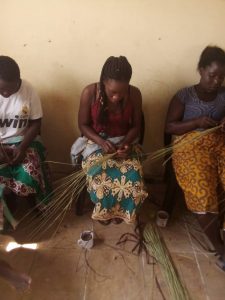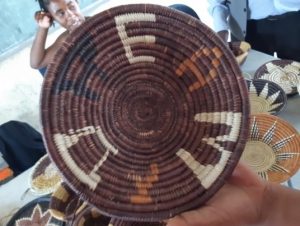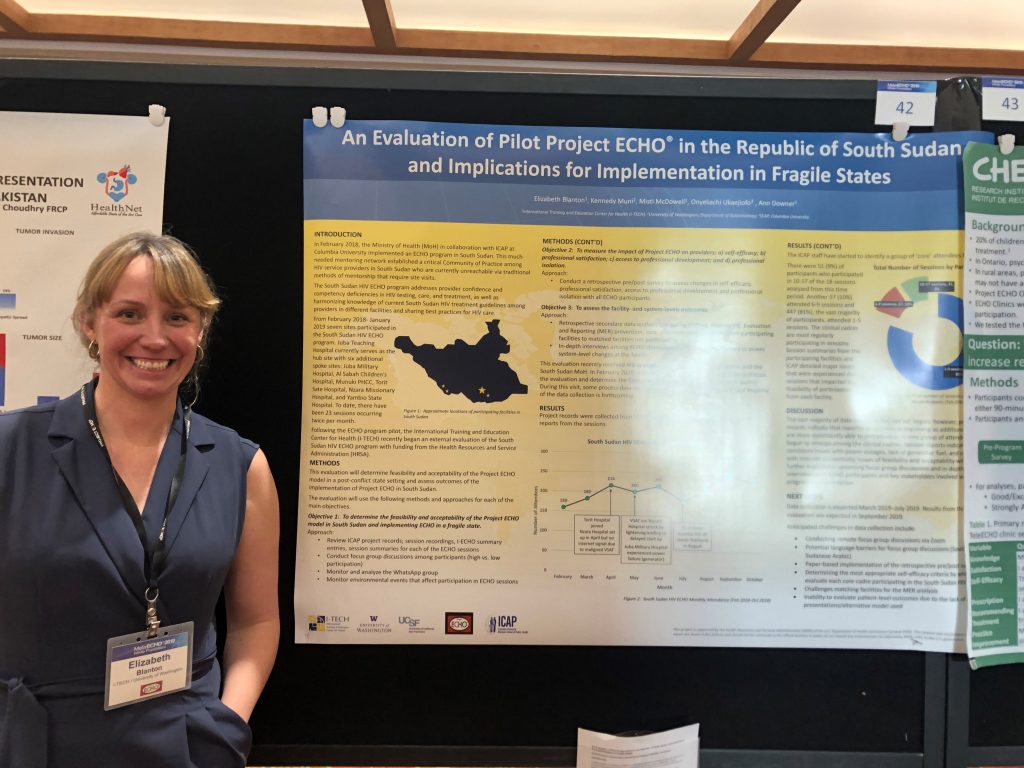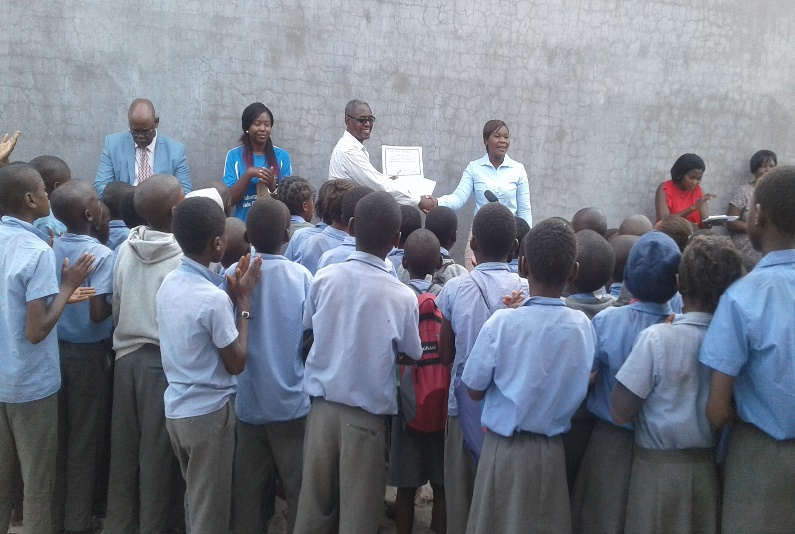The International Training and Education Center for Health (I-TECH), in collaboration with the Namibian Ministry of Health and Social Services (MOHSS) and with funding from the President’s Emergency Plan for AIDS Relief (PEPFAR) through the Centers for Disease Control and Prevention (CDC), has launched a campaign to raise awareness of the importance of screening for and treatment of cervical pre-cancer in women aged 20–49.
This awareness campaign is the most recent expansion of the Namibian Cervical Cancer Screening and Treatment Program, which was rolled out in 2018 following the adoption of national cervical cancer guidelines by the MOHSS in March 2018.
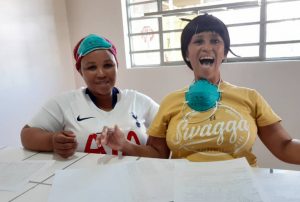
The rollout of this awareness campaign and expansion of the program has been especially important during the COVID-19 pandemic because patients may be less likely to visit their health care provider for preventive care, including cervical cancer screening and treatment.
“This campaign will bring a much-needed awareness to not only screening but also the different treatment options that are available,” says Dr. Laura Muzingwani, I-TECH’s Cervical Cancer Prevention Lead Physician in Namibia. “We want to ensure that all women, particularly HIV-positive women, are empowered to take action and get screened for cervical cancer. We also want to inform women that they can still be safely screened despite the ongoing COVID-19 pandemic.”
Screening and treatment are available to anyone who needs it, but the I-TECH program has focused its efforts on HIV-positive women. Women living with HIV are five to six times more likely to develop cervical cancer than HIV-negative women, even if they are on antiretroviral therapy (ART). Currently, the I-TECH program supports screening and treatment at 31 MOHSS health facilities and 11 outreach sites in seven regions across Namibia. As of August 2020, the program had performed more than 14,000 screenings and 1,700 treatment procedures for HIV-positive women.
“The cervical cancer program has achieved a lot of success within a short period,” says Dr. Laimi Ashipala, MOHSS Chief Medical Officer HIV/AIDS and STI Control subdivision. “With these additional outreach and awareness efforts, we hope to reach 100,000 HIV-positive women in the next two years.”
As part of the campaign’s outreach efforts to reach HIV-positive women, I-TECH is contacting women receiving ART to offer cervical cancer screenings during their routine medication pick-up visits. The team is also reaching out to community-based ART refill groups as a way to bring screening services to HIV-positive women at community meeting points.
Expanding and Adapting the Health Care Provider Training Program
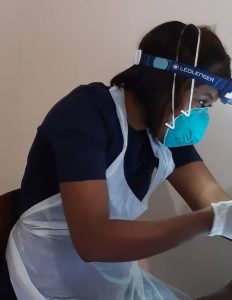
In addition to awareness and outreach, the program has expanded cervical cancer screening and treatment training for health care providers (e.g., doctors, registered and enrolled nurses).
“Key aspects of the program have been the training and uptake of our health care providers,” explains Dr. Ashipala. “We are scaling up our efforts to train and certify health care providers in using VIA and ablative treatments throughout the country. In addition to VIA and ablative treatments, we have also expanded training and certification to include LLETZ and cervical biopsies, which allows us to treat patients who may not be eligible for ablative treatments.”
The COVID-19 pandemic has led to adjustments in the way trainings are provided for the safety of facilitators and participants and to aid in pandemic control efforts. In response, I-TECH supported a virtual MOHSS VIA (visual inspection with acetic acid or VIA) screening training for nine, newly recruited cervical cancer screening health care providers. Since the program began in 2018, I-TECH and MOHSS have trained 249 health care providers.
Creating a Suite of Informational Materials
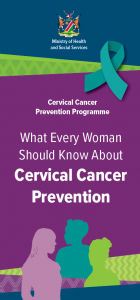
I-TECH, in collaboration with stakeholders, has developed a suite of materials—flyers, brochures, and posters—for patients and providers to complement the outreach and training efforts.
The materials highlight the importance of screening, encourage women to make an appointment, explain the method of screening, and provide information about the treatment options that are offered through the program.
The materials will be used by health care providers during health education sessions with patients, distributed to women when they visit their health care facility or ART clinic, and following screening and/or treatment appointments. Some of the materials will also be displayed at health facilities and referral hospitals to advertise screening availability.
“We applaud the Ministry for highlighting the need for cervical cancer prevention, screening, and treatment despite the ongoing COVID-19 pandemic and taking action by collaborating in the development of resources, adopting guidelines for providers, and supporting training for health care providers,” says Dr. Muzingwani.
